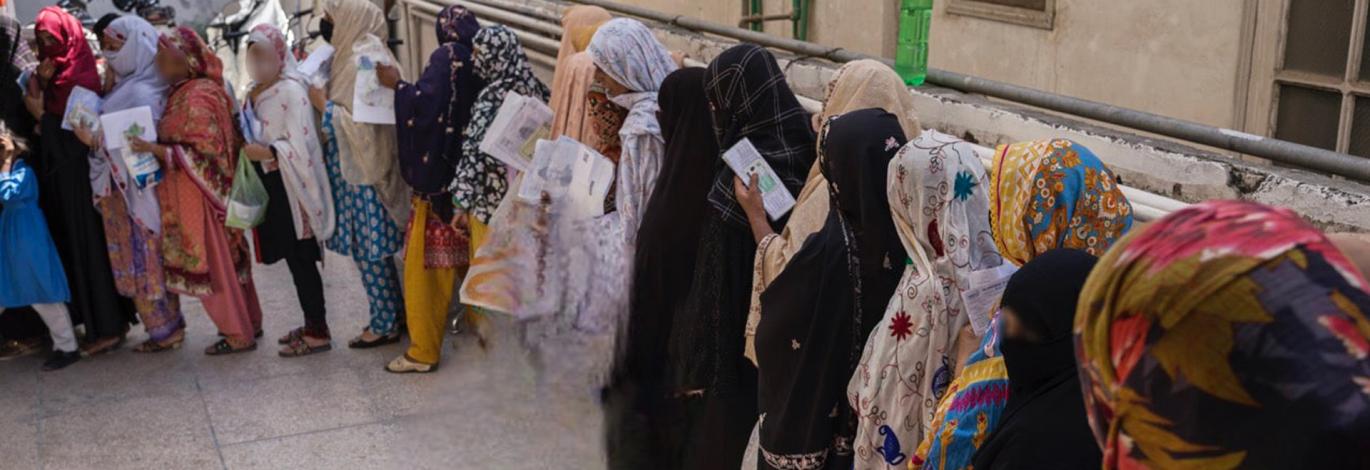
Women’s empowerment is defined as “the process by which those who have been denied the ability to make strategic life choices acquire such an ability”. These life choices can be further distinguished into first- and second-order choices. Where the former pertains choices that are imperative for a person to live the life they want (for example, decisions regarding whether or not to marry, have children, or accessing reproductive health care). These first-order choices then help shape the less consequential second-order choices.
Reproductive health services, which contains place of delivery, skilled attendance at birth, antenatal and postnatal care have been acknowledged as an essential human right for women. They also play a pivotal role in combating poverty and ensuring improved long-term health of both mother and child.
Considering the above, I conducted a study to assess whether a cash transfer program leads to empowering women of Pakistan by increasing their uptake of reproductive health services. For this purpose, the Benazir Income Support Program (BISP) was explored, which was initiated by The Government of Pakistan to provide monetary relief to eligible households. The program also aims to empower women by targeting ever-married women as beneficiaries.
Women’s access to financial resources can improve their well-being and position; this notion is generated from household bargaining theories that assert access to monetary resources as a significant factor which influences power dynamic in a household. The difference in access to these resources leads to variations in the well-being of members in a household.
Therefore, my study focuses on BISP, because it hypothesizes that access to monetary resource through the program translates into a positive differential in the decision-making capabilities of women; and thus, empowers them in their ability to decide on a first-order choice like reproductive health services.
In order to test the study objective, I employ a Regression Discontinuity Design (RDD) on the 2018-19 Pakistan Standard of Living Measurement (PSLM) survey. BISP recipient and non-recipient households are identified by constructing the Proxy Means Test score.
Results show an insignificant impact of BISP on the utilization of reproductive health services. Which implies that increasing women’s access to monetary resource does not have any influence on their utilization of reproductive health services’, a first order strategic life choice. This could potentially be because in such cases it is typically the mother-in law who makes decision on whether the young women should even avail these services. Moreover, the norms prevailing in a society like Pakistan follow the notion of ‘purdah’ and ‘izzat’, which are often associated with women of the household and restricts their mobility above. Another potential reasoning could the socio-economic conditions of the household which would not allow prioritizing health services as a necessity.
While the results were not significant, I hope this research could prove as a stepping stone for further in-depth research in the area, potentially a qualitative one to explore in detail, recipients’ point of view. Moreover, future research should also keep in mind that monetary transfers alone often do not lead to a change; thus, other aspects that influence decision-making of an individual should be considered.
Adeen Saeed is currently working as a Research Associate at a Population Research Centre situated at NUST, with research interests in gender, financial inclusion and development economics.
